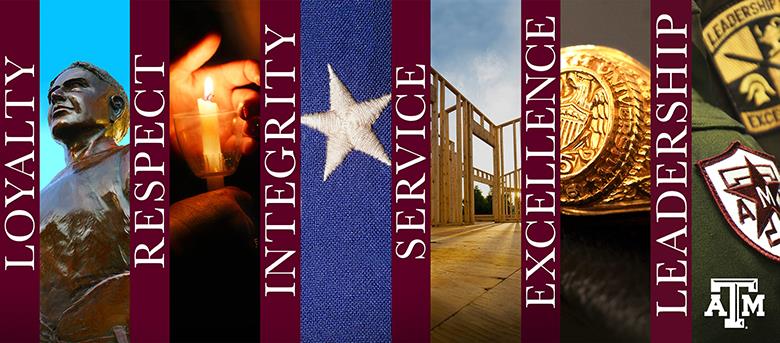Equal Justice Program
Pro Bono hours
The Equal Justice Program facilitates the 30-hour pro bono requirement for Texas A&M law students. We believe the Equal Justice Program will enrich your legal education experience.
- Practice lawyering skills in a real-world setting by representing clients through client interviewing, counseling and advocacy.
- Make contacts with potential mentors, employers and others who can help plan and advance your careers.
- Gain an appreciation for the importance of giving back to the community and improving access to legal services.

Pro Bono FAQs
What is the pro bono requirement, and how is it satisfied?
Each student must perform no less than 30 hours of pro bono work through a placement that has been preapproved by the school. Although 1Ls are not encouraged to begin pro bono work until after their first semester of law school, pro bono work may start in any semester of law school and must be completed prior to graduation. The student is responsible for selecting a placement, contacting that office, arranging to do the work, completing the work and filling out all proper forms.
- The work must be law-related. Clerical work is appropriate only to the extent needed to carry out the overall legal task.
- The work must be uncompensated. Students may not receive monetary compensation, academic credit or other tangible benefits for performing the service.
- The work must be supervised by an attorney. Private attorneys working on pro bono cases, court-appointed cases, or qualifying cases for a sliding scale fee can supervise a law student’s work on those cases.
- Step 1: Log into REVS and select 'Experiential Learning' on the screen's left side.
- Step 2: Select 'New Experience.' Enter all requested information.
- Step 3: Save and submit for initial approval. The initial submission will allow access to all of the remaining tabs ('Hour Log' and 'Documents').
- Step 4: Log hours in the 'Hour Log' tab. Select the 'Add Hours' button and enter your date, hours, and description of the task completed for that day.
- Step 5: Download and print the 'Student Evaluation' and 'Supervisor Evaluation' pages. Please complete the student evaluation and have your supervisor complete the lower portion of the supervisor evaluation and sign; once both forms are completed, upload each form back into the documents and forms section.
- Step 6: Submit for final approval.
How many hours of pro bono work are required?
Thirty hours are required. Some placements require more or less than 30 hours. While you must comply with any special requirements the placement imposes on your hours, you may split your hours among various placements or do all of your hours with one placement. Also, depending on the needs of the particular placement, you may do more than 30 hours.
When can I start?
Pro bono work may start in any semester of law school and must be completed prior to graduation. 1Ls are not encouraged to begin pro bono work until after their first semester of law school.
When must I have completed my pro bono work?
December graduates must have their pro bono hours completed by October 17. May graduates must have their pro bono hours completed by March 20. We encourage you to complete the required 30 hours well before the deadline, so we have time to process your paperwork and credit you with having completed the requirement.
What forms am I required to fill out and submit?
You can now enter your pro bono information into the REVS pro bono module. All necessary forms, including the supervising attorney signature form, can be found in the REVS pro bono module.
Instructions for REVS can be found in the sidebar (or below on mobile devices).
How do I select a placement?
There are three ways to select your pro bono placement:
- A list of the preapproved placements is available here.
- Browse the Equal Justice Placement Binder located in the Office of Student Affairs.
- Email myprobonohours@law.tamu.edu to receive information about preapproved placements.
Students are encouraged to think "outside the box" to locate placements that are specific to their interests. To discuss placements that have not been preapproved, schedule an appointment with the Office of Student Affairs.
What do I do once I’ve selected my placement?
In order to receive credit for your pro bono work, you must complete and submit all the proper forms. You can now enter your pro bono information into the REVS pro bono module.
What if my placement has special requirements?
If you select a placement with special requirements, you must comply with them. Any special requirements will be noted on the placement’s information sheet. For example, the Federal Public Defender’s Office requires a commitment to do 40 hours of pro bono work, and the Arlington City Attorney’s Office requires a criminal background check.
What if I want to complete my pro bono work with a placement that has not been preapproved?
You must seek preapproval before you commence work. If you would like to seek approval for a particular placement, you should contact Dean Cook to request preapproval of the placement.
You will not receive credit for pro bono work unless your placement is preapproved before you begin.
Can I count work done at my firm toward my pro bono requirement?
No, you may not count work for which you receive financial compensation toward your pro bono requirement. Thus, if you are engaged in pro bono work at a law firm where you are a paid employee, you may not count this time if you are being paid.
For more information, contact the Office of Student Affairs at studentaffairs@law.tamu.edu.